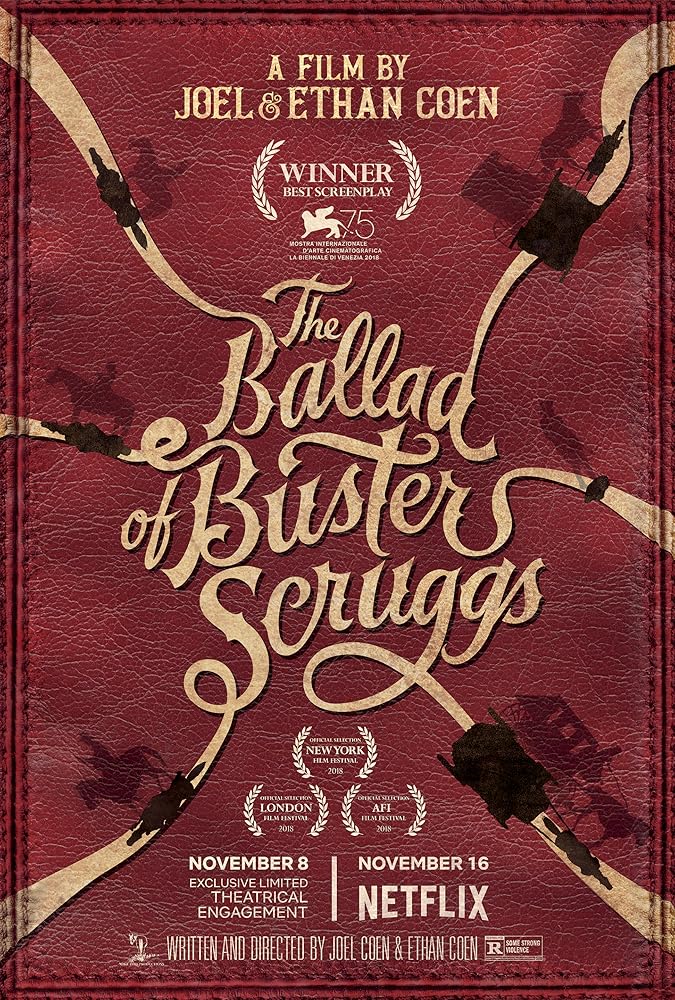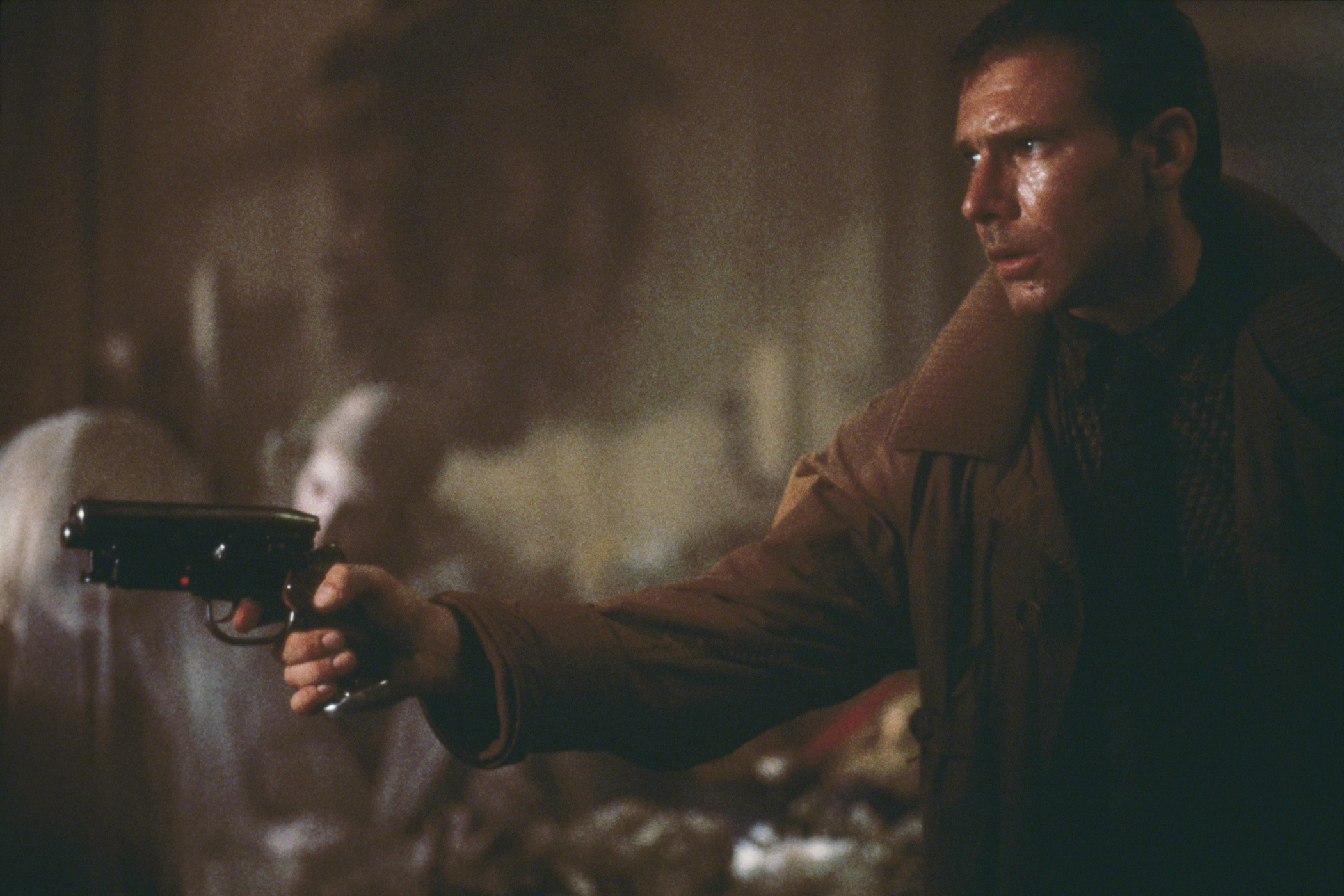Post by SnoBorderZero on Nov 26, 2018 22:03:04 GMT -5

There are very few filmmakers that can boast the diverse and un-compromised filmography that Joel and Ethan Coen have compiled over their four decades of work, and even fewer can claim a fanbase that's as diverse as theirs either. I've written about this before, but it's pretty impressive that cinephiles and the fairly casual moviegoers alike often revel at the news of a new Coens feature. I suppose in a way it shouldn't be too surprising considering the Coens, despite people often attempting to label them in a specific vein of "quirky comedies" or "offbeat dramas", have made so many movies that cover such a wide range. The Coens certainly operate within genre pictures, and yet similarly to Quentin Tarantino or Howard Hawks, are able to make the genre pic feel entirely their own. True Grit isn't so much a western as it is a Coens film. Yes, it operates within the same archetypes as most classical westerns do, and yet their stamp is all over the film. Perhaps for audiences it's the sense that they're watching something familiar that feels like a genre picture to settle in with only to be pleasantly surprised that it has more to offer that makes the Coens so universally lauded. On top of that, with the exception of two or three films, the Coens have been remarkably consistent over the years, putting out solid film after solid film. You even have to admire the Coens for not even trying to top their last effort but rather are more interested in making the film they're interested in next. No Country for Old Men, one of the best films of the decade easily, was followed the next year by Burn After Reading. To be in the full control of cinephiles who have such a grasp of cinema and its history yet display none of the pretension that would turn audiences off is pretty remarkable. Their latest film is a project through Netflix, marking a first for the Coens as they wade into the world of streaming. And on top of that it's another unique venture for the Coens since The Ballad of Buster Scruggs is an anthology western, a rarity in several ways and maybe the first of its kind. While the film itself, like pretty much any other feature length anthology, isn't a complete success and has uneven elements scattered throughout, The Ballad of Buster Scruggs is another entertaining and unique offering from the Coens that settles nicely into the middle of their impressive resume.
The film itself is broken up into seven different chapters, each of varying lengths. The initial one is the eponymous title of the movie, and in my opinion the one most audiences will enjoy the most and then be subsequently disappointed that the rest of the film doesn't carry the same tone and energy. Buster Scruggs (Tim Blake Nelson) is a sort of bard, gunslinger hybrid that gets into comically stylized shootouts with outlaws and unsavory characters and then proceeds to entertain with his singing. Despite earning the title of the film, Buster Scruggs is not a character that presides over anything else in the movie, and each chapter exists independently of one another. The next chapter follows a cowboy (James Franco) who robs a bank which is entertaining but has only a minimal payoff. Up next is perhaps the most profound and discussion worthy despite being perhaps the most understated of the bunch where a traveling show operator (Liam Neeson) tours with his amputated orator (Harry Melling), but finds that Western audiences are more interested in cheap, tacky diversions than intellectual stimulation. This is followed by the amusing story of a prospector (Tom Waits) who camps out at a beautiful embankment while digging for gold. After that is the longest segment of the film where Alice Longabaugh (Zoe Kazan) caravans along the Oregon Trail and strikes up a platonic relationship with Billy Knapp (Bill Heck). Finally we get a carriage ride with a couple of bounty hunters (Jonjo O'Neill and Brendan Gleeson) who reflect on life, relationships, and morality with some unassuming travel companions.
When reflecting on each of these chapters, it's clear the Coens have nailed the sort of Old West storytelling that perfectly flows in each of these segments. None of the segments have any correlation with one another, and they all play a little differently though somehow are largely within the same tone. It seems the Coens have played with tall tales, ghost stories, and love on the frontier narratives that one would collect from that time and have thrown their own voice into each of them. All of the segments feel legitimate and are always interesting, and yet something is missing from every single one of them. Honestly I think it's how all of them play out. There are several twists and turns in each story, but the payoff never seems as fantastic as it should be. We're amused when we should be thrilled, we're chuckling when we should be chortling. While each segment rings true, none of them feel as impressive as they should be, save for perhaps the third segment with Liam Neeson which isn't as big as the others but works well as a sort of understated morality tale. You never feel disappointed watching them, but you never feel wholly satisfied either. The framework is there, from the setting to the tone to the characters, but it only mostly pays off when it should greatly succeed. They're all pretty fun in their own ways, but the problem with basically every anthology film is that none of it adds up to anything on the whole aside from a fairly entertaining two hours of Old West tales. It's a shame too because the Coens have really offered up something unique here and have everything else in place. The cinematography by Bruno Delbonnel is gorgeous without going for anything prestige. It perfectly embodies the sort of yarn spinning by cowboys on the prairie tone that the Coens are going for. There's a wonderful cast here who all lend great energy to their roles and appear to be having a wonderful time doing it.
And yet disappointingly I keep coming back to the plot itself being just alright. It's safe to say we expect more from the Coens because they're so great at presenting unique characters and worlds and keeping us on our toes. The Coens bring us into worlds we think we know and feel familiar being in, only to throw wonderful curve balls at us. The Ballad of Buster Scruggs, despite having the tools in place to be one of the Coen's best films, unfortunately never meshes as well as it should. There's no central theme or characters providing a sort of connective tissue for us to grasp onto either. Like some of their breezier works, The Ballad of Buster Scruggs is simply the Coens inviting you to have an entertaining two hours with them, nothing more. It's no Fargo or The Big Lebowski or Raising Arizona, but it's good enough and unique enough on its own merits to be worth a viewing.
7/10



